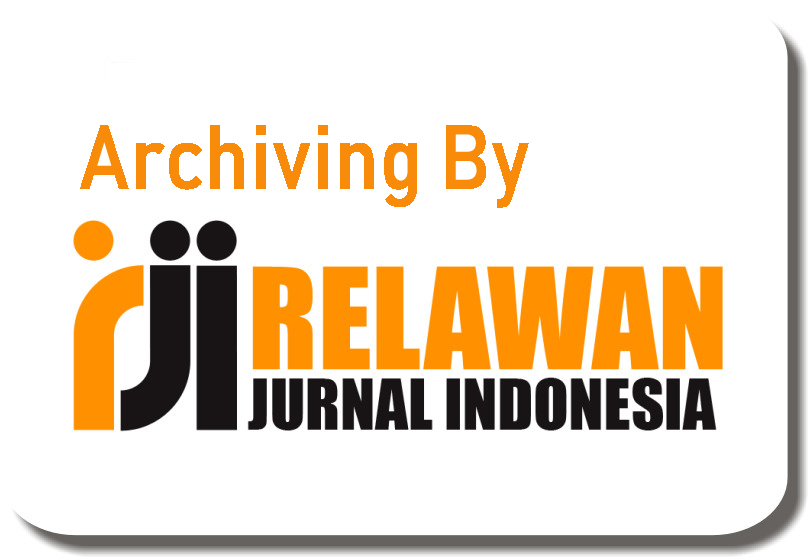Level of Students’ Motivation in Using Quizizz Based on Pintrich's Theory
Abstract
Keywords
Full Text:
PDFReferences
Atmowardoyo, H. (2018). Research methods in TEFL studies: Descriptive research, case study, error analysis, and R & D. Journal of Language Teaching and Research, 9(1), 197–204. https://doi.org/10.17507/jltr.0901.25
Berndt, A. (2020). Purposive sampling. In Encyclopedia of Research Design. SAGE Publications. https://doi.org/10.4135/9781412961288.n346
Bury, B. (2017). Testing Goes Mobile–Web 2.0 Formative Assessment Tools. Conference Proceedings. ICT for Language Learning, 87.
Cook, D. A., & Artino, A. R. (2016). Motivation to learn: An overview of contemporary theories. Medical Education, 50(10), 997–1014. https://doi.org/10.1111/medu.13074
Daulay, S. H., Gultom, E., & Hutabarat, T. (2023). Exploring students’ engagement using Quizizz in online English learning. Journal of English Language Teaching and Linguistics, 8(1), 122–137
Dhamayanti, R. (2021). Gamification in EFL classrooms: Teachers’ perceptions of using Quizizz as an assessment tool. Indonesian Journal of Educational Research and Review, 4(2), 215–222
Deci, E. L., & Ryan, R. M. (2017). Self-determination theory: Basic psychological needs in motivation, development, and wellness. Guilford Press.
Dwinta, N. (2020). The Role of Media Quizizz in Civics Learning to Increase Learning Motivation for Elementary School Students. The 3rd International Conference on Elementary Education, 3, 21
España-Delgado, M. (2023). Gamified learning in EFL: Enhancing engagement through Quizizz. TESOL International Journal, 18(4), 45–60
From, J. (2017). Pedagogical digital competence – Between values, knowledge and skills. Higher Education Studies, 7(2), 43–50
Froiland, J. M. (2015). Parents' weekly descriptions of autonomy supportive communication: Promoting children's motivation to learn and positive emotions. Journal of Child and Family Studies, 24, 1172–1179. https://doi.org/10.1007/s10826-014-9925-2
Gagné, M., & Deci, E. L. (2005). Self‐determination theory and work motivation. Journal of Organizational Behavior, 26(4), 331–362. https://doi.org/10.1002/job.322
Gillison, F. B., Rouse, P., Standage, M., Sebire, S. J., & Ryan, R. M. (2018). A meta-analysis of techniques to promote motivation for health behaviour change from a self-determination theory perspective. Health Psychology Review, 13(1), 110–130. https://doi.org/10.1080/17437199.2018.1534071
Hodges, C., Moore, S., Lockee, B., Trust, T., & Bond, A. (2020). The difference between emergency remote teaching and online learning. Educause Review. https://er.educause.edu/articles/2020/3/the-difference-between-emergency-remote-teaching-and-online-learning
Mishra, P., & Koehler, M. J. (2006). Technological pedagogical content knowledge: A framework for teacher knowledge. Teachers College Record, 108(6), 1017–1054. https://doi.org/10.1111/j.1467-9620.2006.00684.x
Piaget, J. (1970). Science of education and the psychology of the child. Orion Press.
Pintrich, P. R. (1991). A manual for the use of the Motivated Strategies for Learning Questionnaire (MSLQ). University of Michigan, National Center for Research to Improve Postsecondary Teaching and Learning.
Pratiwi, D. N., & Waluyo, B. (2023). Developing EFL teachers’ pedagogical digital competence: Challenges and strategies. Journal of Language and Education Innovation, 11(1), 89–101
Razali, N., Nasir, N. A., Ismail, M. E., Sari, N. M., & Salleh, K. M. (2020). Gamification Elements in Quizizz Applications: Evaluating the Impact on Intrinsic and Extrinsic Student’s Motivation. IOP Conference Series: Materials Science and Engineering, 917(1). https://doi.org/10.1088/1757-899X/917/1/012024
Rojas, L., Cedeño, C., & Peña, M. (2024). Gamification in language education: The impact of Quizizz on EFL learners. International Journal of Emerging Technologies in Learning, 19(1), 33–45
Vygotsky, L. S. (1978). Mind in society: The development of higher psychological processes. Harvard University Press.
Wimolmas, R. (2013). A survey study of motivation in English language learning of first year undergraduate students at Sirindhorn International Institute of Technology (SIIT), Thammasat University. Proceedings of the 3rd International Conference on Foreign Language Learning and Teaching (FLLT 2013), 904–915. https://fllt2013.payap.ac.th/proceedings/
Yulianto, I., Warsono, W., Nasution, N., & Rendy A.P, D. B. (2020). The Effect of Learning Model STAD (Student Team Achievement Division) Assisted by Media Quizizz on Motivation and Learning Outcomes in Class XI Indonesian History Subjects at SMA Trimurti Surabaya. International Journal for Educational and Vocational Studies, 2(11). https://doi.org/10.29103/ijevs.v2i11.2746
Yunus, M. M., & Tan, K. H. (2021). The effectiveness of Quizizz in improving English language performance among secondary school students. Asian Journal of University Education, 17(3), 59–69
DOI: https://doi.org/10.31004/jele.v10i4.1235
Refbacks
- There are currently no refbacks.
Copyright (c) 2025 Khori Putri Ramadhani, Adrefiza, Berliana Sukma Tri Sukarno

This work is licensed under a Creative Commons Attribution-ShareAlike 4.0 International License.



